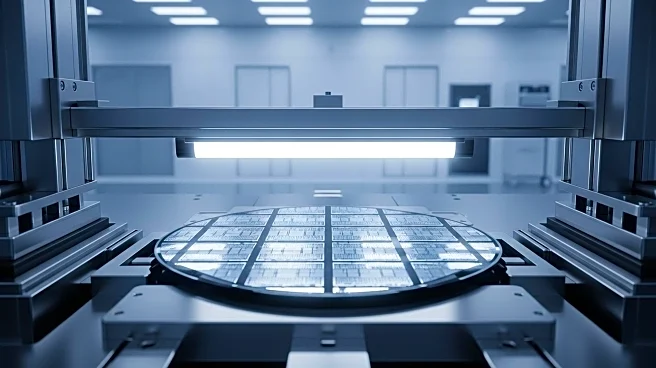What's Happening?
The Dutch government has taken control of Nexperia, a semiconductor maker owned by China's Wingtech Technology, in a move to ensure the availability of chips in Europe amid escalating global trade tensions. Nexperia specializes in producing chips for automotive and consumer electronics industries, making it crucial for Europe's technological supply chains. The Dutch Minister of Economic Affairs invoked the Goods Availability Act to prevent the unavailability of Nexperia's products in emergencies. This decision follows recent governance issues within Nexperia, which posed a threat to technological knowledge and capabilities in Europe. Wingtech's shares dropped 10% following the announcement.
Why It's Important?
This intervention by the Dutch government highlights the growing concerns over economic security and technological independence in Europe. By taking control of Nexperia, the Netherlands aims to safeguard its technological capabilities and reduce reliance on foreign entities amid rising trade tensions, particularly between the U.S. and China. The move could impact trade relations between China and the Netherlands, especially in light of China's recent restrictions on rare earth exports. It underscores the strategic importance of semiconductor manufacturing in maintaining economic stability and technological advancement in Europe.
What's Next?
The Dutch government's control over Nexperia is expected to last up to a year, during which the company is under temporary external management. This period will likely involve assessments of Nexperia's operations and governance to ensure compliance with Dutch and European standards. The intervention may lead to further scrutiny of foreign investments in critical industries across Europe, potentially influencing future policy decisions regarding economic security and technological independence.
Beyond the Headlines
The decision to control Nexperia reflects broader geopolitical dynamics, where countries are increasingly prioritizing national security over free trade. This move could set a precedent for other European nations to take similar actions to protect their technological industries. It also raises ethical questions about the balance between national security and market freedom, as governments navigate complex trade relationships in a globalized economy.










